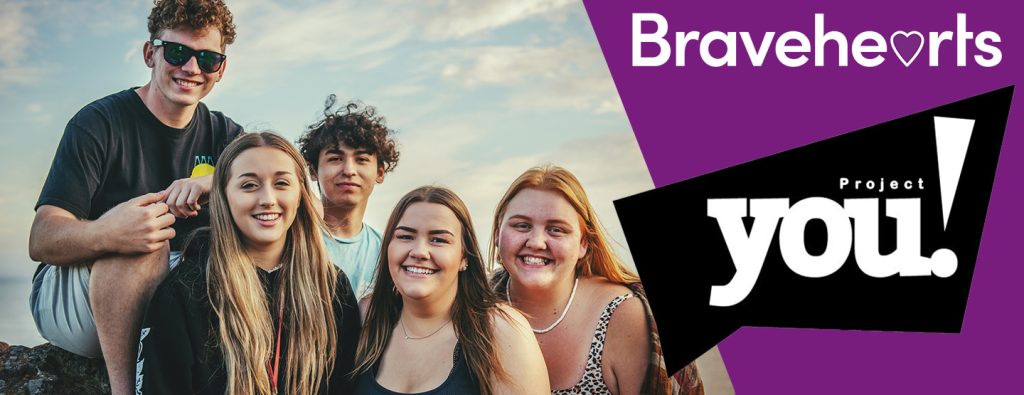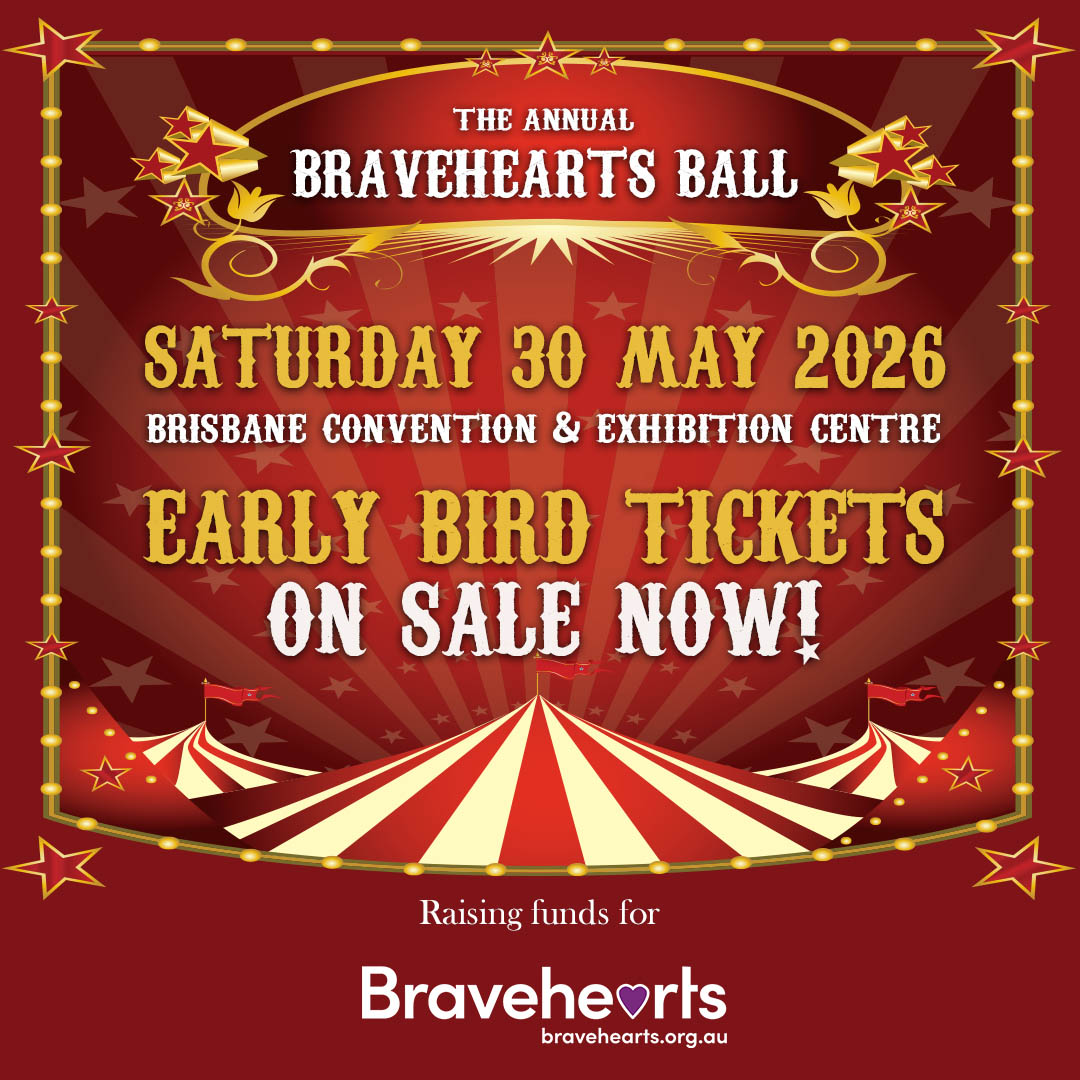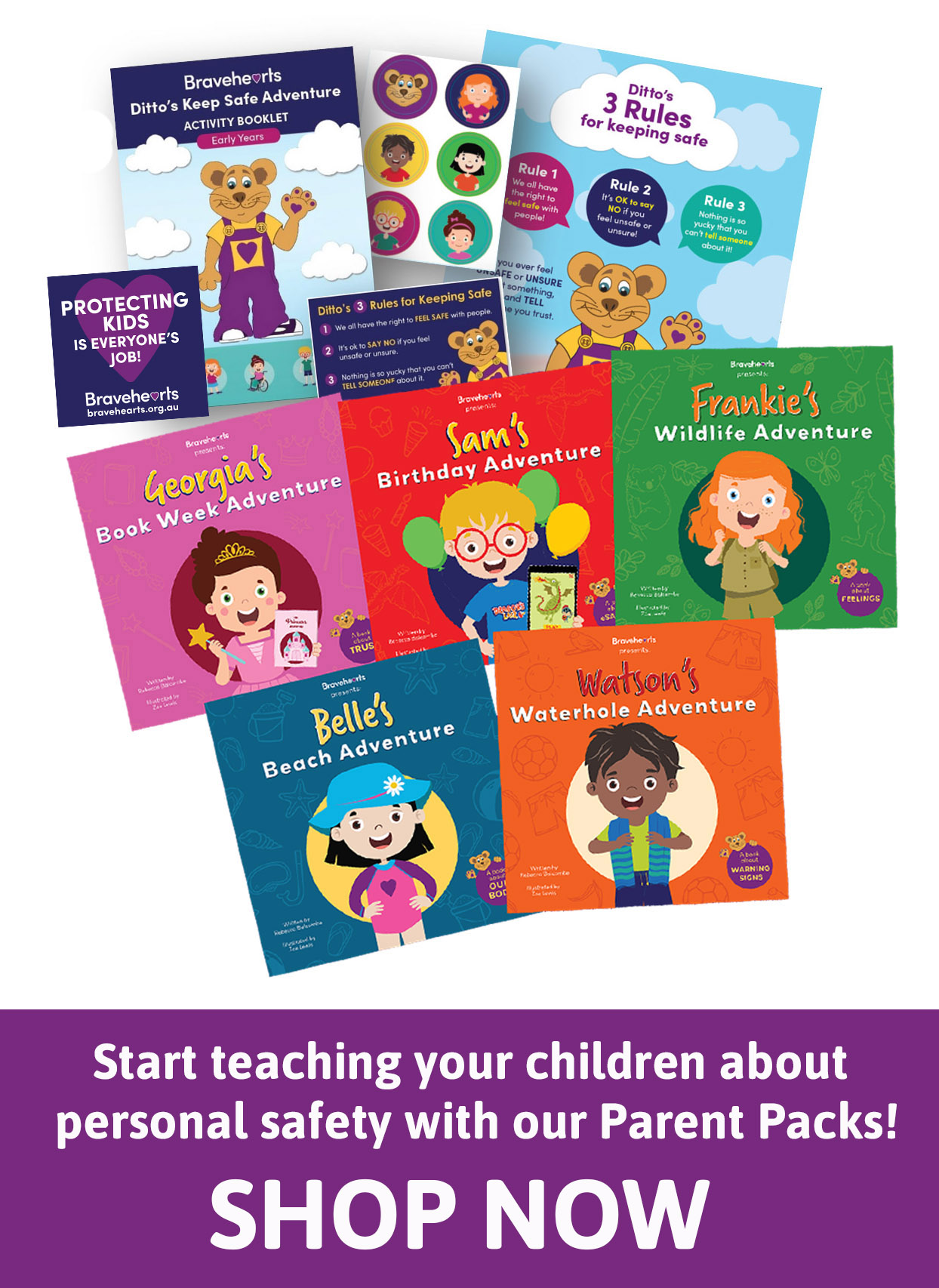Education + Training
Helpful Links
- Home > Education + Training > ProjectYou! Consent Education
ProjectYou! Consent Education
Consent Education for Young People in Grades 7 to 12
Bravehearts ProjectYou! is a consent education program that encourages students to engage and participate in meaningful conversations and activities about respectful relationships and consent. This program focuses on students’ strengths, skills, and knowledge to help them navigate difficult situations and decisions they may be faced with.
IMPORTANT NOTE: Bravehearts ProjectYou! is currently under redevelopment and is currently unavailable.
Aligned with the National Curriculum, the program is delivered across grades 7 to 12 and is tailored to each age group.
Bravehearts is excited to announce the extensive revitalisation of this industry-leading consent and respectful relationships program. Work is currently underway on refreshed content and curriculum alignment, ensuring students engage with and absorb the vital messaging of personal safety, respect and consent.
ProjectYou! considers and celebrates the diverse voices that make up our communities and the importance of these voices in any consent education program. ProjectYou! includes LGBTQIA+, culturally and linguistically diverse content to encourage inclusivity.

Topics covered in ProjectYou!
This topic utilises discussion, activities, and videos to address two components of emotional intelligence:
Personal safety: students learn to recognise when they are in an unsafe situation, understand their body signals indicating that they are unsafe, and manage the situation/environment/themselves in order to seek help or leave an unsafe situation.
Mental health: students learn to recognise when they are experiencing mental health difficulties, understand what mental health difficulties mean for them and the associated emotions and manage their mental health by seeking help.
This topic utilises discussion, activities, and videos to increase students understanding of healthy versus unhealthy relationships:
Recognising toxic relationships: Students discuss the myths and facts around relationships and are provided with tips on how to withdraw from toxic relationships. This will include an analysis of toxic or abusive relationship indicators or ‘red flags’.
Healthy boundaries: Students enhance their awareness of emotional and physical boundaries (of themselves and others) and discuss techniques on how to communicate boundaries. For senior students, this will involve a discussion on the impact of pornography and realistic expectations of intimate relationships. It will also develop their understanding of sexual behaviours that are healthy, problematic or harmful amongst peers.
Students will explore physical and non-physical boundaries. They will gain understanding of how to communicate their boundaries assertively and respect other boundaries.
Students discuss communication styles and how this influences conflict. They identify the differences between what is or is not helpful during conflict. There is an emphasis on how to repair ruptures and apologise. Students are empowered to use their voice and know that they have a choice.
Students gain an understanding of what legal factors are important to consider when seeking a sexual relationship. They will learn what factors may limit the ability of others to give consent and the importance of considering this. Students will discuss non-verbal cues and nuances when it comes to communicating consent and will consider how to get support if they have been in a situation where there was no consent. They will also examine the impacts of rejection, desires, gender inclusivity and other emotional concerns that may arise from understanding consent.
Students develop an understanding of sexual behaviour amongst peers that range from appropriate to harmful. This includes an age-appropriate activity that is in line with recent adolescent behaviour models. Impacts of pornography will involve a discussion on realistic expectations of intimate relationships and the impact that pornography can have on their ideals or body image.
Cyber-Safety: Students explore the risks for young people online and learn how to be safe while using the internet, apps, and games. This section is tailored to be specific to the appropriate age group and the technology they are most frequently using. Students will gain increased awareness around privacy settings, content ownership and how to report cyber issues. This includes information and statistics on online grooming, catfishing and the risks of meeting people online.
Sexting: Students are educated about the current laws around ‘sexting’ and what to do if an inappropriate image is shared. The key message is ‘what you share will always be there’. Using real-life examples, students will be able to apply their knowledge of the topic to analyse situations and understand the impact that image-based abuse can have. Students will also consider commonality and social trends of sexting through videos, discussion, and activities.
Students discuss their role in creating a culture of respect through open communication, debunking consent myths, understanding the negative impacts of stereotypes and encouraging these changes through leadership.
Students will examine the importance of using critical thinking when making decisions particularly navigating their way through challenging changes in technology and social norms. They will use activities to help gain skills and attitudes to do this without allowing bias to affect their critical thinking.
This module provides students with a better understanding of the prevalence of bullying and how it can negatively impact youth. Students discuss ways they can safely intervene in a bullying situation (face to face and cyberbullying), how they can support each other and the importance of committing to a bully-free environment. They also analyse complex situations from the point of view of the victim, bully, and bystanders to understand escalating circumstances and the impact on everyone involved.
Statistically, young people are more likely to disclose harm to a peer than an adult, therefore the importance of knowing what to do with this information is critical. Students are provided with practical skills for responding to friends who may share confidential information and will discuss appropriate ways to value peers’ privacy whilst considering their personal safety as paramount.
Looking After Me: The focus of this module is on stress management, self-care and resilience-building strategies. Students also learn how to identify when they need professional help and are provided with a list of support services available to them.
| Bravehearts is endorsed by the eSafety Commissioner as a Trusted eSafety Provider. To learn more visit esafety.gov.au/trusted-providers. The eSafety website provides a range of information and resources for various audiences. |
 BACK
BACK

